U.S. casts wide net in war on terrorMSNBCMar. 05, 2006 |
Popular 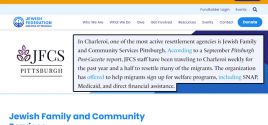
Chris Rufo Discovers Who is Flooding The Small Town of Charleroi, Pennsylvania With Haitian Migrants
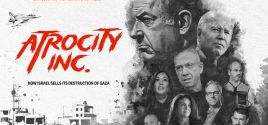
WATCH: New Film 'Atrocity Inc' Exposes How Israel Lied About October 7th to Justify Genocide
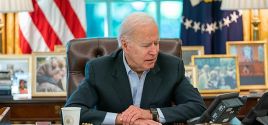
Biden on Netanyahu: "He's a F--king Liar"
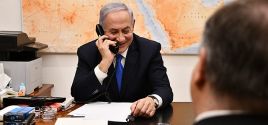
Netanyahu: Trump Called to 'Congratulate' Me On War With Hezbollah
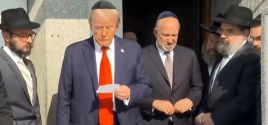
Trump Visits Lubavitcher Rebbe's Grave With Ben Shapiro for October 7th
 Petty criminals among catch at Guantanamo, papers show SAN JUAN, Puerto Rico - New documents on the Guantanamo detainees suggest the Bush administration has cast a wide net in its war on terror. But the U.S. has often come up empty as American troops picked up suspects with descriptions as varied as a Kazakh apple seller and a Pakistani millionaire. Evidence against the apple seller, for example, showed he had been captured by the Taliban and forced to work as a cook. In fact, the man told his U.S. military tribunal, he was only a cook’s helper, and had never heard of al-Qaida or the Taliban until he was kidnapped and conscripted by Afghanistan’s former hardline Islamic regime. “I never had a weapon. I never carried a weapon with me and I’ve never been in any kind of armed fight,” he said in one of hundreds of military hearings held to determine whether detainees at the U.S. prison at Guantanamo Bay are being properly held without charges as “enemy combatants.” These and other details emerging from about 5,000 pages of transcripts released Friday suggest the Bush administration has picked up any number of low-level suspects along with admitted al-Qaida and Taliban members and the rare high-value target, a Pakistani millionaire who twice met Osama bin Laden. Terror fight cloaked in secrecy The Pentagon was forced to release the documents by a federal judge in response to an Associated Press lawsuit, but much of the administration’s war on terror remains shrouded in overwhelming secrecy. The transcripts reveal only unclassified information, for example — the detainees and their representatives are not told what other evidence the military might have against them. The apple seller’s weak link to the Taliban or al-Qaida does not appear to be unique at Guantanamo Bay, the mostly unredacted transcripts reveal. Some detainees say they attended training camps U.S. authorities believe were run by al-Qaida or militants linked to the terror group. A few admit to meeting bin Laden. Some are prominent, like the governor of Afghanistan’s Herat province or the Taliban’s minister of commerce, or the Pakistani millionaire, a man with businesses in the U.S. and ties to Middle Eastern leaders. Some were picked up after their names were found on lists at al-Qaida safe houses in Pakistan, or taken from the battlefields of Afghanistan shortly after U.S. troops invaded and helped drive out the Taliban. |



